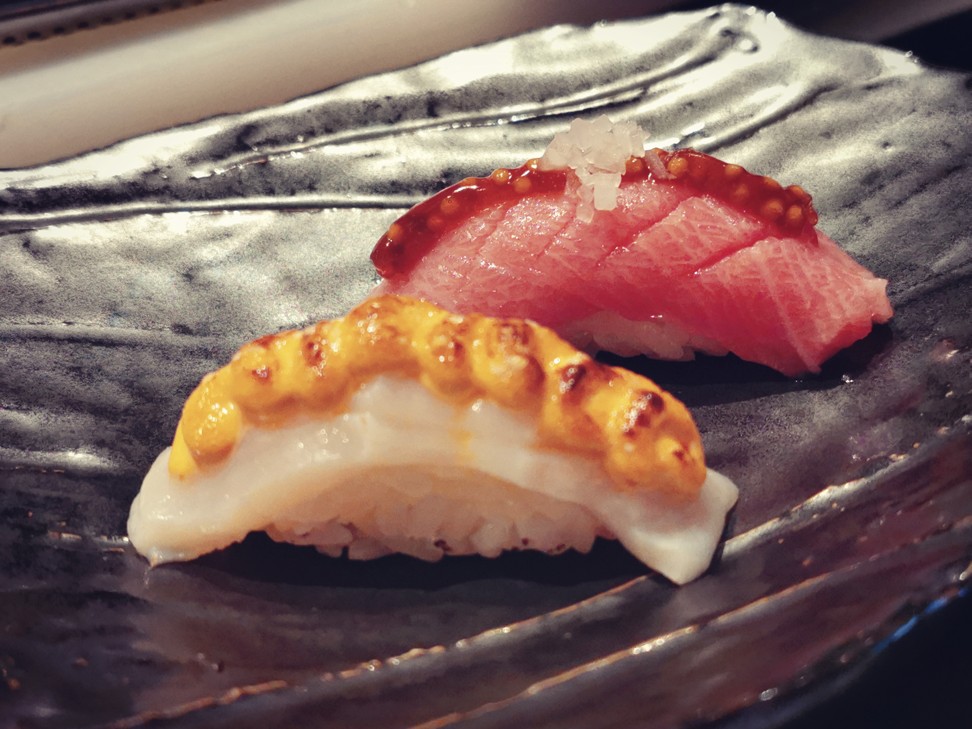
Latin America’s top chef on cooking in the now – ‘I like to cook the way I live and I live one day at a time’
- Japanese-Peruvian Mitsuharu Tsumura owns Maido, in Lima, No.1 on Latin America’s 50 Best Restaurants list, and Aji, in Macau
- I don’t like to plan, he says, you never know what the next trend will be
How was it growing up in a bicultural environment? “My father was Japanese but I was born in Peru. I went to Japan to gain experience working as a chef. At first it was tough. The Japanese expect you to suffer while learning so that you will appreciate success. That is very different from Peruvian culture. I had no girlfriend during those years, because I was just working in the kitchen.”
How do you adapt your restaurants around the world? “We have a brand in Peru called Sushi POP. It is a casual brand and we deliver food from small outlets around the main city. We are opening four more restaurants next year, one of them in Miami [in the United States] and another in Colombia.
“Whenever we open a restaurant, we have to adapt to local tastes. For example, Japan has ramen and gyoza. Those are Chinese dishes, but the Japanese developed them in their own way. Our cuisine in Macau is Nikkei cuisine, but with flavours familiar to Chinese.”

How do you plan your creative endeavours? “We never know what the trend is going to be. I don’t even know what is going to happen tomorrow. Chefs change all the time and it depends on our recent travel experiences, our mood and many other elements. I don’t know what I am going to be doing in a year, but it is going to be tasty.
“I don’t like to plan. I like to cook the way I live and I live one day at a time. There are two days in a year that we cannot do anything about. Those days are yesterday and tomorrow. We can only do things now. It’s my way of looking at life. Ideas come to my mind all the time but I never know if others will like them until I let them try the dishes.”
Do you care about recognition? “Of course I care, and I am not going to lie about that, but we don’t work for recognition. We work to make people happy. I always tell my students that in order to be in the F&B business you need to be someone that makes people happy.
“If not, you are in the wrong business. If you open a restaurant to only make money, you are not going to last long. It’s all about a passion for serving people and if you do it right, recognition will come, but the best recognition comes from the customers.”
What would you like to tell the next generation of chefs? “Nowadays, everybody wants to become a chef. People see celebrity chefs on TV and magazines and they want to become famous.
“Back in the days when I finished school, nobody wanted to become a chef. Chefs’ lives are never what it is on TV. I tell my students that if you never bought a cookbook or a knife, or never cooked for your family, it is a sign that you don’t want to be a chef. You just want to be a celebrity.
“Some people think cooking is not difficult and that’s not true. Don’t get so excited about what’s going on in the food scene, think about yourself, and if you really like cooking, you would know it, but it is not easy. Not everybody can become a chef.”

“Chefs are easily inspired by others, because if you want to learn, you don’t need someone to teach you. You can learn just by watching. Chefs these days share all their techniques. In the past, chefs used to be jealous and kept their recipes to themselves.
“Now we show everything because we know that even though we share our knowledge, nobody is going to make the same dishes. Chefs of Peruvian cuisine work together because the market is not just Peru, it is the world.”
Do you think Peruvian restaurants will succeed in Asia? “It is just the beginning as there are only a few Peruvian restaurants in Asia. If one day a lot of people start to like Peruvian food, the market will become big.”

